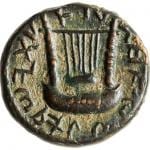
I’m still trying to figure out how Trump supporters make logical sense of his claims about election fraud. In the period before the 2016 election Trump claimed that the system was rigged against him. He won anyway. Now when he has the presidency and ran for re-election he made the same claims in the period before the 2020 election, but while the attempt to steal the election didn’t work when he wasn’t in office, he was powerless to stop it when he was president? Why did the alleged fraud only lead to Trump losing the presidency but not a shift of power in Congress and the House of Representatives in favor of the Democrats?
Perhaps as someone who bought into young-earth creationism as a teenager for a while, I ought to have a better understanding of how it is possible to believe patent falsehoods. But the truth is that deceptions like young-earth creationism have elaborate structures and systems in place to make them look plausible to those who do not dig deeper, who lack a background of relevant expertise, and who are inclined to accept claims of this sort. Trump’s claims have only the latter going for them.
I think the difference is that, while I gullibly believed lies that misrepresented the evidence and this what conclusion it was appropriate to draw from it, evidence still mattered. I could engage in all kinds of motivated reasoning in an effort to persuade myself that my beliefs were true, but willfully believing a falsehood was out of the question. Truth mattered, and so did evidence. I didn’t invite people to simply believe the message I shared with them, I debated with them (however ineptly and misguidedly at times) and invited them to investigate for themselves. Most importantly, evidence and reasoned arguments eventually persuaded me to change my mind.
For some this is still the situation. Their pastors have reassured them Trump won. They want to believe it. They have seen all kinds of videos and web pages purporting to offer evidence, and they have not taken the time to think seriously about the plausibility, never mind the actual factuality, of what they have been told.
Nonetheless something has changed, or at least, something is different for a great many people. They view faith as believing without evidence, even in spite of evidence to the contrary. They have substituted feeling certain in place of being certain because careful investigation provides a sound basis for one’s conclusions. They have mistaken dogmatic insistence they are right, with all the hubris that entails, in place of faith understood as a humble recognition of human frailty and capacity for error and misjudgment, which leads one to trust in God as the one who alone knows all things.
The faith we are seeing given to Donald Trump and his claims is analogous to a particular approach to religious faith. Both represent an idolatrous faith. When one places one’s faith in a politician or party, or in oneself and one’s own sense of certainty, one substitutes an idol in the place of the supreme and ultimate God. Such faith inevitably disappoints. But as one’s idols are exposed for what they are and the pain that inevitably goes along with that process, people are prone to do a lot of harm to others in desperate futile attempts to save the dignity of their gods, and ultimately of themselves.
I’m worried about how common this kind of idolatrous faith, faith that makes a virtue of ignoring evidence and dogmatically insistence one is right, has become. At the moment I’m even more worried that we may yet see violence from those who would sooner bring the entire democratic approach to governance crashing to the ground than admit they made an error of judgment.
Having seen how much credence is given to lies that are easily debunked, I don’t have much faith in my fellow citizens at the moment. But I have hope. And often that is a purer and truer expression of genuine faith, recognizing that we don’t know all the details, we have reason to doubt, and we are not in control of the outcome, but we long for an outcome that will reassure us.
If those who support Donald Trump were merely hoping, rather than unquestioningly and dogmatically insisting they know for certain what they have no way of knowing and no credible evidence supports, I would feel a lot less unsettled than I do at the moment.
Of related interest:
https://religionandpolitics.org/2020/12/08/the-long-road-to-white-christians-trumpism/?fbclid=IwAR0vAsbXXT4-L–lvHlgOXrd5LZuEHuiSl8a89EjFJxbC-PZs-OZC43GeDc
On the Republican Response to the Presidential Election
Donald Trump compared to Emperor Nero.
More than Half of House Republicans Add Names to Seditious Effort to Overturn the Will of the People
Responses from the Battleground States to the Attempt to Invalidate their Election Results. One GOP Politician Calls it a PR Stunt.
Prominent Evangelicals are Directing Trump’s Sinking Ship. That Feeds Doubts about Their Religion.
https://thewayofimprovement.com/2020/12/10/the-trump-intellectuals-defend-voter-fraud/
Rush Limbaugh says the south/rural America is headed for secession
https://thewayofimprovement.com/2020/12/10/court-evangelical-tells-his-congregation-not-to-take-covid-19-vaccine/
John MacArthur says the Pandemic is Prelude to the Coming of Antichrist, while Trump says Biden will be an “Illegitimate President.” Trump tellingly says that 78% of people feel the election was rigged, adding know as a gloss on feel. Eric Metaxas is ready to fight to the death.
https://thewayofimprovement.com/2020/12/10/the-conspiratorial-style-of-ameircan-politics-colonial-america-edition/
https://thewayofimprovement.com/2020/12/10/when-20th-century-students-memorized-dixie-and-long-lists-of-forgettable-governors/
https://friendlyatheist.patheos.com/2020/12/10/michele-bachmann-my-vote-was-stolen-by-satan/
What Does Critical Thinking Mean when You’re in a Conspiracy Theory?
https://www.patheos.com/blogs/publiccatholic/2020/11/trump-got-beat-hes-not-man-enough-to-take-it-neither-are-his-followers/?utm_medium=social&utm_source=facebook&utm_campaign=FBCP-PATH&fbclid=IwAR0GbaydlfnDp5mwxEjAl5cl-PWFyELHn6NV-1yQAh-RdmHiX3_ylpj33dk
https://www.patheos.com/blogs/godzooks/2020/11/deceitfulness-lies-donald-trump-law-congress-politics/
https://www.patheos.com/blogs/tippling/2020/12/04/why-is-covid-skepticism-a-characteristic-of-the-right/?utm_medium=social&utm_source=facebook&utm_campaign=FBCP-PATH&fbclid=IwAR3OM3sdMP4WikfEm4if5pz0SRlePEfsxhmFKGAXmieji5i7TIstWRsV7-4













